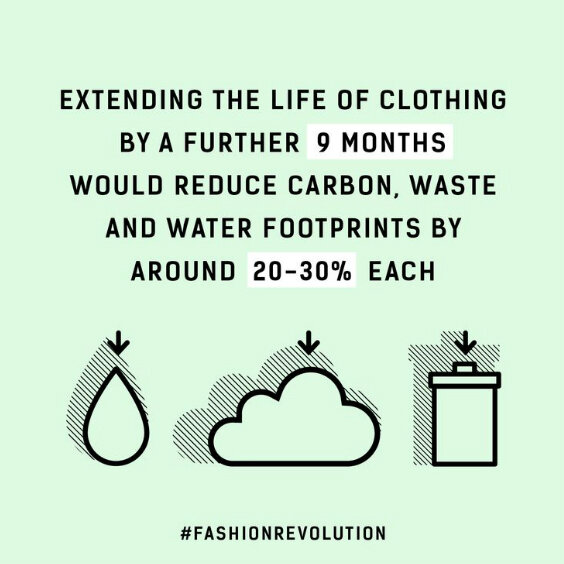Ethical fashion is a Feminist issue
Ethical fashion is undeniably a feminist issue as the fast fashion industry perpetuates the exploitation of women and girls, particularly those from marginalized communities. Shockingly, 93% of garment workers struggle to make ends meet, with 80% of them being women of color. By underpaying and overworking these women, the industry not only violates their basic human rights but also deepens gender inequality.
The pressure to constantly produce cheap clothing at a rapid pace also contributes to environmental degradation, further affecting communities globally. Supporting ethical fashion means advocating for fair wages, safe working conditions, and gender equality - essential components of feminist values.
Fair wear
Fair Wear Foundation is an independent, non-profit organisation that works to improve conditions for workers in garment factories. They know there’s a better way to make clothes. Their mission is to see a world where the garment industry supports workers in realising their rights to safe, dignified, properly paid employment.
Some of these issues include: low wages, precarious employment conditions, incidences of sexual harassment and gender-based violence, health and safety breaches, the inability to form unions collectively bargain for better conditions and, in some cases, the presence of forced and child labour. All of this means that millions of people across the world are working in jobs where their safety is compromised on a daily basis and where their human rights are not upheld.
These are the 8 standard code of labour practices
1 Employment is freely chosen. There shall be no use of forced, including bonded or prison, labour.
2 Freedom of association and the right to collective bargaining. The right of all workers to form and join trade unions and bargain collectively shall be recognised.
3 There is no discrimination in employment. Recruitment, wage policy, admittance to training programmes, employee promotion policy, policies of employment termination, retirement, and any other aspect of the employment relationship shall be based on the principle of equal opportunities, regardless of race, colour, sex, religion, political affiliation, union membership, nationality, social origin, deficiencies or handicaps.
4 No exploitation of child labour. There shall be no use of child labour. The age for admission to employment shall not be less than the age of completion of compulsory schooling and, in any case, not less than 15 years. There shall be no forms of slavery or practices similar to slavery, such as the sale and trafficking of children, debt bondage and serfdom and forced or compulsory labour.
5 Payment of living wage. Wages and benefits paid for a standard working week shall meet at least legal or industry minimum standards and always be sufficient to meet the basic needs of workers and their families and to provide some discretionary income.
6 Readonable work hours. Hours of work shall comply with applicable laws and industry standards. In any event, workers shall not on a regular basis be required to work in excess of 48 hours per week and shall be provided with at least one day off for every seven-day period. Overtime shall be voluntary, shall not exceed 12 hours per week, shall not be demanded on a regular basis and shall always be compensated at a premium rate.
7 Safe and healthy working conditions. A safe and hygienic working environment shall be provided, and best occupational health and safety practice shall be promoted, bearing in mind the prevailing knowledge of the industry and of any specific hazards. Appropriate attention shall be paid to occupational hazards specific to this branch of the industry and assure that a safe and hygienic work environment is provided for. Effective regulations shall be implemented to prevent accidents and minimise health risks as much as possible. Physical abuse, threats of physical abuse, unusual punishments or discipline, sexual and other harassment, and intimidation by the employer is strictly prohibited.
8 Legally binding employment relationship. Obligations to employees under labour or social security laws and regulations arising from the regular employment relationship shall not be avoided through the use of labour-only contracting arrangements, or through apprenticeship schemes where there is no real intent to impart skills or provide regular employment. Younger workers shall be given the opportunity to participate in education and training programmes.
VEGAN FASHION
At Yonitown, we prioritize cruelty-free practices. Our materials and fabrics are plant-based, and we use water-based inks that are environmentally friendly and never tested on animals. We believe that clothing shouldn’t come at the cost of another animal's life. Choosing to be a vegan clothing label is our way to show respect to all living creatures that inhabit our planet.
Watch PETA’s campaign, ‘Be a Sweater’, which looks at the objectification of women and animals through the fashion industry. Note, it is graphic.



